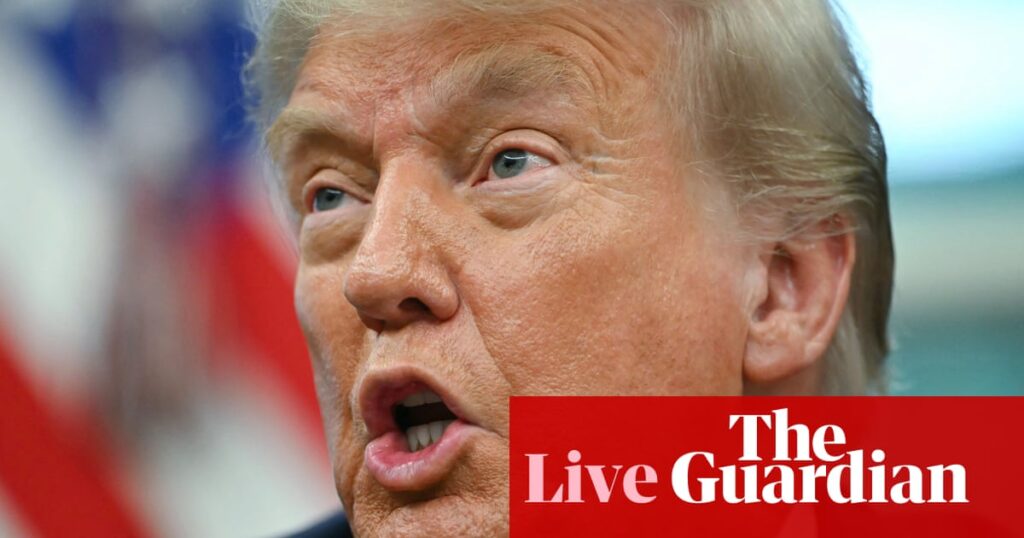
In a series of candid remarks, former President Donald Trump has signaled the possibility of imposing further sanctions on Russia, expressing dissatisfaction with President Vladimir Putin’s actions in Ukraine. Speaking about the ongoing conflict, Trump stated, “That was a war that should have never happened. A lot of people are dying and it should end. We get a lot of bullshit thrown at us by Putin, if you want to know the truth. He’s very nice all the time, but it turns out to be meaningless.”
The comments come amidst a backdrop of heightened tensions between the United States and Russia, with weekly casualties in Ukraine reportedly reaching 7,000. Trump remarked, “I’m not happy with Putin. I can tell you that much right now, because he’s killing a lot of people, and a lot of them are his soldiers, his soldiers and their soldiers mostly.” When asked about potential actions, Trump cryptically suggested, “I wouldn’t be telling you, we want to have a little surprise.”
Potential Sanctions and U.S. Policy
Trump’s consideration of additional sanctions reflects ongoing U.S. policy debates on the best approach to handling Russian aggression. The former president’s administration had previously imposed significant economic penalties on Russia, targeting key sectors such as finance, energy, and defense.
Experts suggest that further sanctions could aim to tighten the economic noose around Russia, potentially impacting its ability to sustain military operations in Ukraine. However, the effectiveness of sanctions in changing Russia’s behavior remains a topic of debate among policymakers and analysts.
Domestic Policy and Governance
Meanwhile, Trump has also floated the idea of a federal takeover of Washington, D.C., a proposal he has mentioned in the past. During a cabinet meeting, Trump indicated that his administration was exploring the possibility, with his chief of staff, Susie Wiles, reportedly in contact with the city’s mayor, Muriel Bowser.
The notion of federal governance over the capital is controversial and would require congressional approval to repeal the 1973 Home Rule Act. Critics argue that such a move would undermine the city’s autonomy and democratic governance.
Trade and Economic Measures
In a related economic development, Trump announced plans to impose a 50% tariff on imported copper, citing national security concerns. The administration has initiated a Section 232 investigation into U.S. imports of the metal, which is crucial for various industries, including electric vehicles and military hardware.
Trump’s approach to trade has been characterized by a preference for tariffs over quotas, as seen in his previous administration’s imposition of global tariffs on steel and aluminum. A White House official noted that any potential tariff rate on copper would be determined by the ongoing investigation.
International Relations and Security
On the international front, Trump’s Middle East envoy, Steve Witkoff, announced the potential finalization of a 60-day ceasefire agreement in Gaza by the end of the week. The agreement, which involves the release of hostages, follows proximity talks that have narrowed outstanding issues.
Trump also expressed support for Israeli Prime Minister Benjamin Netanyahu, who is facing a corruption trial. “He’s been very unfairly treated. I think what they’ve done to him in Israel is very unfair,” Trump commented, underscoring the administration’s commitment to the U.S.-Israel relationship.
Implications and Future Outlook
The potential for increased sanctions on Russia, alongside domestic and international policy proposals, highlights the multifaceted challenges facing the U.S. as it navigates complex geopolitical landscapes. The effectiveness of these measures will depend on a range of factors, including international cooperation and domestic political support.
As the situation evolves, stakeholders will be closely monitoring developments, particularly in relation to the U.S.’s strategic objectives and its impact on global stability. The coming weeks are likely to bring further clarity on the administration’s policy direction and its implications for international relations.







